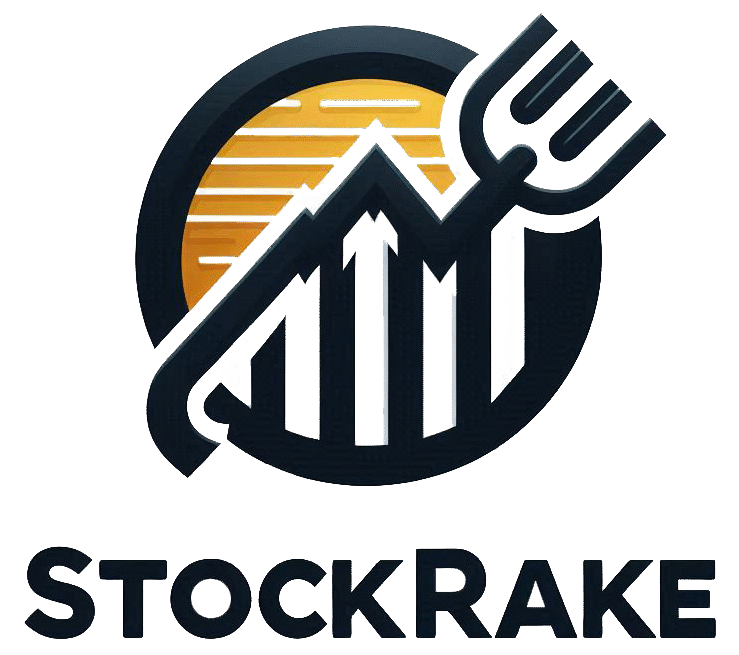If you’ve started exploring India’s financial markets, you’ve probably heard about stocks and ETFs (Exchange Traded Funds). Both are popular investment vehicles, but they work quite differently. Understanding their structure, benefits, and risks can help you make smarter, more informed investment decisions — whether you’re a beginner or an experienced trader.
In this guide, we’ll break down how stocks and ETFs differ, their advantages, disadvantages, and which might suit your goals best.
What is a Stock?
A stock, also called a share or equity, represents ownership in a company. When you buy a share, you essentially own a small part of that business.

If the company performs well, you benefit through:
- Capital gains (stock price increases), and
- Dividends (a share of profits distributed to shareholders).
In India, companies issue shares to the public through an Initial Public Offering (IPO). Once listed, these shares are traded freely on exchanges like the National Stock Exchange (NSE) and the Bombay Stock Exchange (BSE).
Types of Stocks
| Type | Description | Key Benefit |
|---|---|---|
| Common Stock | Grants ownership, voting rights, and potential dividends. | Participate in growth and decision-making. |
| Preferred Stock | Usually no voting rights, but offers fixed dividends and higher priority in liquidation. | More stable income with less control. |
💡 Example: If you buy 100 shares of Infosys, you become a part-owner of the company. If Infosys declares a ₹20 dividend per share, you earn ₹2,000.

Also Read: What Are the Key Takeaways from the Latest Fed Meeting?
What Is an ETF (Exchange Traded Fund)?
An ETF is a type of investment fund that pools money from multiple investors to buy a basket of securities — such as stocks, bonds, commodities, or indices.

Think of ETFs as a bundle of investments that trade on the stock exchange, just like individual stocks. The main difference? Instead of owning one company’s shares, you’re investing in many companies at once, which helps diversify your portfolio.
📘 According to NSE India, ETFs have become one of the fastest-growing investment categories for Indian retail investors.
Types of ETFs

| Type | Description | Example |
|---|---|---|
| Index ETF | Tracks a market index like Nifty 50 or Sensex. | Nippon India Nifty BeES |
| Sector ETF | Focuses on a specific industry like banking or IT. | ICICI Prudential Bank ETF |
| Bond ETF | Invests in government or corporate bonds. | Bharat Bond ETF |
| Inverse ETF | Moves opposite to the market. When markets fall, it rises. | Used by short-term traders. |
| Leveraged ETF | Uses borrowed money to amplify returns (and losses). | Riskier—suitable for experienced traders. |
🧠 Tip: ETFs can be a great way to mirror the performance of large indices without having to buy every individual stock yourself.
Similarities Between Stocks and ETFs
- While they serve different purposes, stocks and ETFs share several similarities that make them attractive to retail investors:
- Digital Access: You can trade both easily using online brokerage apps like Zerodha, Groww, or Upstox.
- Exchange-Traded: Both can be bought and sold during market hours through your trading account.
- Transparency: You can track prices in real time. ETFs even publish their holdings daily.
- Liquidity: Popular ETFs and large-cap stocks are easy to trade with minimal price difference between buying and selling.
- Dividends: Both can generate regular income—stocks through direct dividends, ETFs through distributions.

Also Read: Is Dollar-Cost Averaging Still a Smart Strategy in 2025?
Key Differences Between Stocks and ETFs

| Feature | ETFs | Stocks |
|---|---|---|
| Meaning | Basket of securities (stocks, bonds, etc.) | Ownership in a single company |
| Ownership | Indirect—own fund units | Direct—own part of a company |
| Voting Rights | None | Yes, for common shareholders |
| Risk | Lower (diversified portfolio) | Higher (depends on one company) |
| Management | Professionally managed | Self-managed by investor |
| Fees | Expense ratio (management fee) | Minimal or no fee beyond brokerage |
| Control | Limited—you can’t choose holdings | Full control—choose and time trades |
| Tax Efficiency | More tax-efficient due to structure | Taxes depend on holding period and gains |
🎯 Example: Buying the Nifty 50 ETF gives you exposure to 50 top companies in India. Buying Reliance Industries stock, however, ties your return to one company’s performance.
Pros and Cons of Investing in Stocks

✅ Pros
- No Management Fees:
Apart from brokerage charges, there are no recurring costs. - Higher Profit Potential:
If you identify strong-performing companies early, returns can far exceed those from ETFs or mutual funds. - Full Control:
You decide which companies to invest in, when to enter or exit, and how much to allocate. - Dividend Income:
Many established Indian companies like ITC or HDFC Bank offer consistent dividends.
❌ Cons
- Higher Risk Exposure:
Your success depends on one company’s fortunes. Poor earnings or management changes can lead to losses. - Time-Intensive:
Stock selection, research, and monitoring require effort and knowledge. - Volatility:
Stocks can swing dramatically due to news, market sentiment, or global events. - Behavioral Bias:
Emotional trading (fear or greed) often leads to poor decision-making.
📊 According to Forbes, over 80% of retail traders underperform the market due to emotional decisions and lack of diversification.
Pros and Cons of Investing in ETFs
✅ Pros
- Diversification:
One ETF can hold dozens or even hundreds of securities, reducing the risk of any single company affecting your portfolio. - Lower Risk:
Since ETFs spread investment across sectors or indices, they’re generally more stable than individual stocks. - Ease of Trading:
ETFs are traded on exchanges just like stocks, allowing quick entry or exit. - Cost-Effective:
ETFs usually have lower expense ratios than mutual funds. - Transparency:
Holdings are updated regularly, so you always know what you’re investing in.
❌ Cons
- Less Control:
You can’t choose specific holdings within the ETF. - Management Fees:
Even small fees can compound over time, especially for actively managed ETFs. - Potentially Lower Returns:
Because ETFs mirror the market, they rarely outperform it. - Tracking Error:
The ETF’s performance may slightly deviate from the underlying index due to costs and execution delays.
Stocks vs ETFs: Which Is Right for You?
The choice between stocks and ETFs depends on your goals, risk tolerance, and investment style:
| Investor Type | Recommended Option | Reason |
|---|---|---|
| Beginners | ETFs | Simpler, diversified, lower risk |
| Active Traders | Stocks | More control and profit potential |
| Long-Term Investors | ETFs or blue-chip stocks | Stable growth and dividends |
| Risk Takers | Stocks | Potential for higher rewards |
| Passive Investors | ETFs | “Set it and forget it” approach |
🔍 Case Example:
- If you invest ₹10,000 in Reliance stock and it rises by 20%, you gain ₹2,000.
- If you invest the same in a Nifty ETF that rises by 10%, you gain ₹1,000—but with much lower risk.
Actionable Tips for Indian Investors
- Start with ETFs if you’re new. They offer a safer entry into the market.
- Gradually explore individual stocks once you understand market trends.
- Reinvest dividends to maximize compounding benefits.
- Avoid overtrading. Focus on long-term growth rather than daily market movements.
- Use trusted platforms like Zerodha, Groww, or HDFC Securities for smooth investing.
- Track your portfolio regularly using tools like Moneycontrol or Value Research.

Also Read: What Is a Stock and How Does It Work?
Conclusion
Both stocks and ETFs can be excellent tools for building wealth — but they serve different purposes.
- Stocks are ideal if you want direct ownership, control, and potentially higher returns, provided you’re willing to do the research.
- ETFs, on the other hand, are perfect for those seeking diversification, simplicity, and lower risk through a passive investment approach.
The smartest investors often combine both—using ETFs for core stability and individual stocks for growth opportunities.
FAQs About Stocks and ETFs
Q1. Are ETFs safer than stocks?
Generally, yes. ETFs spread your money across multiple securities, reducing risk compared to owning one stock.
Q2. Can I lose money in an ETF?
Yes, ETFs can fall in value if the market or underlying assets decline. However, losses are usually smaller than in single stocks.
Q3. Which gives better returns—stocks or ETFs?
Stocks can offer higher returns but come with greater risk. ETFs provide steady, market-level returns with lower volatility.
Q4. Do ETFs pay dividends in India?
Yes, some ETFs distribute dividends based on the underlying companies’ payouts.
Q5. What are the best ETFs in India right now?
Popular options include Nippon India Nifty BeES, ICICI Prudential Sensex ETF, and Bharat Bond ETF. (Check latest performance on Moneycontrol).

